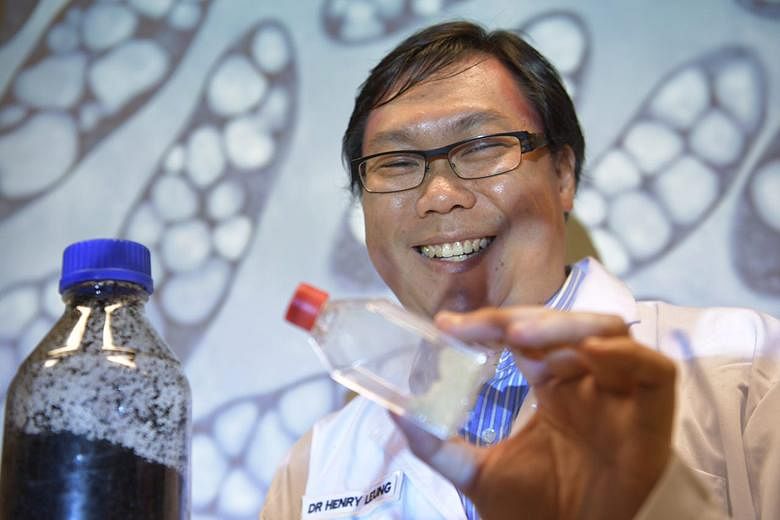SINGAPORE - Scientists in Singapore have found a process that can potentially produce biodegradable plastics at half the cost and in a less harmful manner to the environment.
While promising, it is still early days for the project, which may come to fruition only in three to five years, said Dr Henry Leung, leader of the research team from Nanyang Polytechnic, on Monday (Dec 11).
The next step for the team is to find business partners such as coffee companies and plastic manufacturers as well as join forces with other researchers to improve the process and get it ready for the market, added Dr Leung, 42.
The breakthrough in making "greener" plastics essentially involves using a new bacteria and solvents like acetone.
The bacteria, called Cupriavidus necator, eats nutrients in coffee waste and stores them as a chemical called polyhydroxyalkanoates (PHA).
When the solvent is added, the bacteria dies and releases the PHA, which is crucial for the making of plastics that are environmentally friendly, said Dr Leung, a senior specialist (pharmacology and toxicology) and senior lecturer at the polytechnic's school of chemical and life sciences.
The PHA helps degrade plastics more swiftly, he added.
In doing so, fewer plastic products such as bottles and bags will clog waterways and be eaten by animals, such as sea turtles and birds.
But the current process of producing PHA is very pricey, with 1g of PHA being sold at $28,000, said Dr Leung.
He estimates his method of producing PHA would cost about 50 per cent less.
Making PHA also pollutes the environment because the solvents typically used, like hexane, are more pollutive than acetone.
The way coffee is produced in Singapore also helps to save on costs, Dr Leung said.
"Coffee beans are roasted with sugar and butter and these are enough to give the bacteria energy to produce PHA,'' he added.
Team member Alvin Teo, 49, a senior lecturer (molecular biotechnology), noting the project is in a "very exploratory stage'', said: "It's up to industry players to see how far we can take this."


